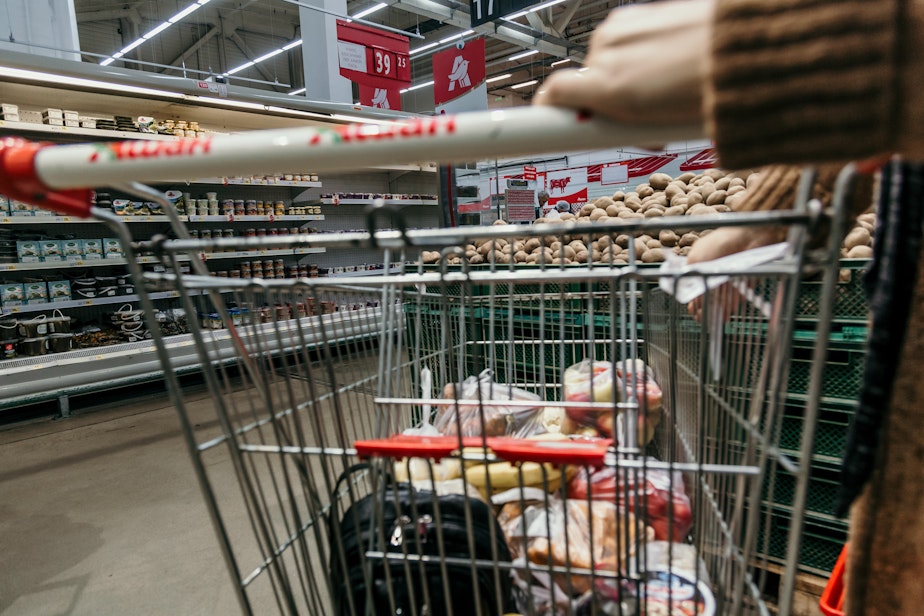Grocery shopping during the coronavirus pandemic: Here's what you need to know about our food supply

Around the region, we’ve seen evidence of panic-buying at grocery stores: empty shelves or a low supply of certain items.
It’s as if people are shopping out of fear that items won’t be restocked. Should we be concerned?
The short answer is no. Jan Gee, president of the Washington Food Industry Association, said there’s enough food and supplies for everyone.
“I got reports in from our warehouses that their inventory is fuller than they have seen in the last several weeks,” Gee said. “We’re asking that the public shop like you would always shop in the past because we have plenty of product.”
And manufacturers have been cranking up production. Sometimes it could mean that some products might not be available in your favorite brand; you’ll just have adjust your expectations.
“Some of our manufacturers have greater capacity to add on another shift to convert their equipment enough to produce product but maybe not the same type that the consumer might be used to… but it’s all healthy and it’s safe and that’s the important thing.”
Grocery stores have also been adjusting to this jump in demand. And they’ve made some changes so certain items, like toilet paper, don’t run out. For example, many stores are limiting the number of toilet paper packages to one per customer.
Another thing that shoppers should know: most grocery stores are now designating morning hours for shoppers considered at-risk, such as seniors and people who are medically vulnerable. The new practice is treated as an honor system and supermarkets are asking shoppers to respect that.
Most stores are adjusting their operating hours for restocking and daily deep cleaning.
And by now you’re seeing Plexiglas barriers at checkout stands. These are some of the steps that supermarkets are taking to protect both customers and workers.
Tiffany Sanders, corporate affairs manager for QFC said, “We have someone at each of our QFC stores dedicated to making sure that carts are sanitized. And so what that means is as soon they see a customer walking toward the store, they are sanitizing and wiping down the cart before they handing it to the customer so they can go in and do their shopping.”
Shoppers who’d rather avoid going to the store have been shopping online instead. Sanders said they’re expanding that service to more stores where customers can order online and either pick up their purchase curbside or have it delivered. In fact, they saw their online orders recently jump. And like many grocery stores, they’re hiring to keep up with the pace.
“I was recently talking to a store manager and that they would see on a normal day about 10 online orders; they’ve been seeing 50-60 online orders,” said Sanders. “That’s one of the areas that we’re hiring the most right now, our e-commerce clerks.”
While grocery stores are scrambling to adjust to the pandemic’s effects, so too have food banks.
Jenn Tennant of Northwest Harvest, said the items they try to procure for food banks are not always available.
“Just as shelves have been bare, what we’ve been experiencing is not being able to buy the exact same products or have the exact same timeline on the products that we used to purchase, that are coming in to our warehouses to support our partners.”
Tennant said they’re still able to buy food, but not always the same products. Under the state’s stay-at-home restrictions, food banks are considered essential — and like grocery stores, remain open.
Still, fewer people are coming in. In response, food banks are dropping off food closer to their communities.
“We’re actually dropping food at some low-income apartment buildings, we’re dropping off food at different clinics. We’re actually taking some food out to local schools so when kids come to pick up their free and reduced lunch, they can also take home a bag of groceries as well. So we’re trying to be much more creative in how we get food to people right now.”





